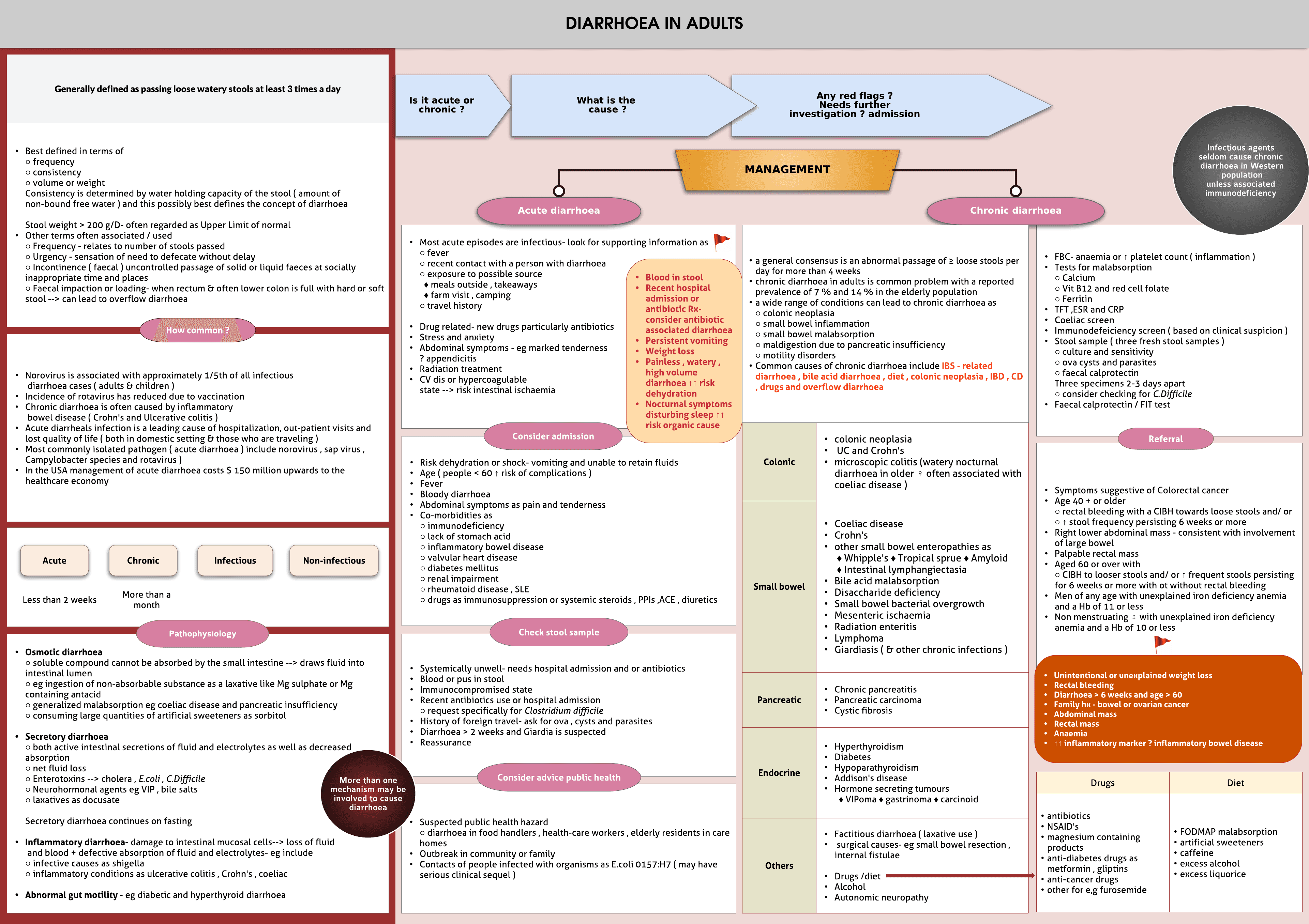Download A4Medicine Mobile App
Empower Your RCGP AKT Journey: Master the MCQs with Us!

Generally defined as passing loose watery stools at least 3 times a day
Best defined in terms of○ frequency○ consistency○ volume or weightConsistency is determined by water holding capacity of the stool ( amount of non-bound free water ) and this possibly best defines the concept of diarrhoeaStool weight > 200 g/D- often regarded as Upper Limit of normal Other terms often associated / used ○ Frequency - relates to number of stools passed○ Urgency - sensation of need to defecate without delay○ Incontinence ( faecal ) uncontrolled passage of solid or liquid faeces at socially inappropriate time and places○ Faecal impaction or loading- when rectum & often lower colon is full with hard or soft stool --> can lead to overflow diarrhea
How commmon-Noravirus is associated with approximately 1/5th of all infectious diarrhoea cases ( adults & children ) Incidence of rotavirus has reduced due to vaccination Chronic diarrhoea is often caused by inflammatory bowel disease ( Crohn's and Ulcerative colitis ) Acute diarrhoeal infection is a leading cause of hospitalization, out-patient visits and lost quality of life ( both in domestic setting & those who are travelling) Most commonly isolated pathogen ( acute diarrhoea ) include noravirus ,...
Try our Free Plan to get the full article.